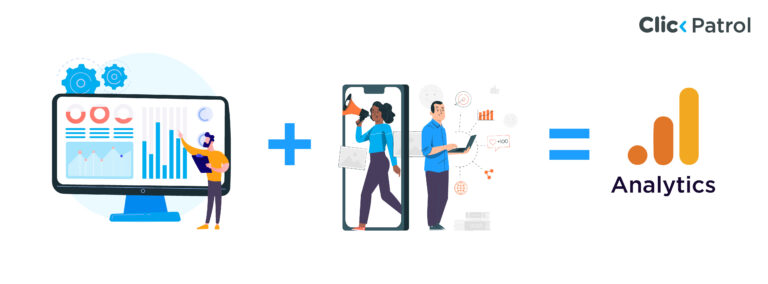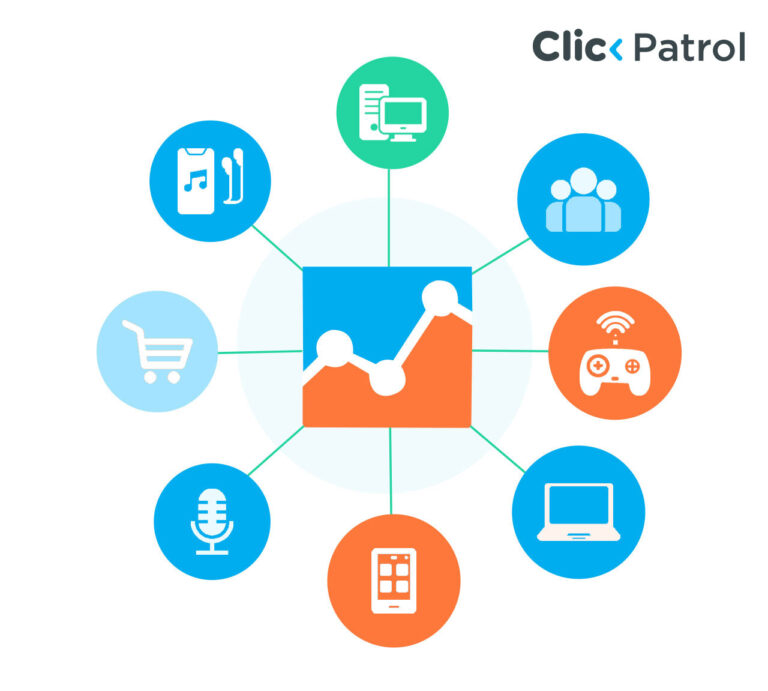
Impact of foreign clicks on Google Ads targeting the Netherlands
Abisola Tanzako | Sep 12, 2024

Table of Contents
To achieve the best results in your Google Ads targeting the Netherlands, you’ll need to avoid foreign clicks.
Google Ads, responsible for over 94% of the search engine market share in the Netherlands, is another popular PPC advertising. The Netherlands is one of the most digitized nations and e-commerce markets globally, which benefits advertisers. Geographic targeting is just one of the many choices and an essential element that determines the efficiency of the advertising campaign. Foreign clicks are a nuisance to companies marketing their brands to the Netherlands market.
These clicks are generally from outside the targeted area, the Netherlands, and can influence the campaign and make it less efficient. Thus, further research is required about the potential causes of foreign clicks, the consequences of receiving them, and ways to combat them by utilizing Google Ads to target the Netherlands. This article looks at clicks from other countries, their effects on businesses, and how they can be minimized, specifically on Google Ads aimed at the Netherlands.
Understanding foreign clicks
Foreign clicks refer to clicks on online ads or links carried out by users not in the advertiser’s targeted geographical area. This is when Google Ads targeted at the Netherlands have interactions from outside the geographic location, making it a choice target for advertisers. Some clicks may be relevant, e.g., potential tourists seeking to explore the Netherlands; some may be irrelevant or unintentional, and others could be from invalid activities.
To give an in-depth understanding of foreign clicks, here are the classifications:
- Accidental clicks: These clicks occur when users accidentally click on ads. This may be due to a poor user interface, pages loading slowly, or obstructive ad placements. These clicks are mostly unintentional and do not lead to conversions.
- Curious clicks: These clicks arise as a result of curiosity from users outside the geographical location of the advertised product or service. Often, these clicks do not convert to sales.
- Fraudulent clicks: clicks from foreign locations could sometimes be carried out by click bots or corporate rivals to deplete the advertiser’s budget.
Why do foreign clicks occur?
Foreign clicks targeting the Netherlands happen for the following reasons: knowing these and how to avoid them helps achieve the campaign’s goals.
- Broad geo-targeting setting: An aspect that has been observed to contribute significantly to foreign clicks on Google ads is advertisers adopting a broad geo-targeting setting. If this option is enabled, people from other regions may see ads targeted for the Netherlands if they have shown interest in other ads from the Netherlands.
- VPN usage: Virtual Private Networks, or VPNs, help mask a user’s location and IP address since the client’s connection is routed through servers in other countries. This can lead users from other regions to interact with ads meant for the Netherlands because their VPN is set in that region.
- Click fraud occurs when automated bots, other malicious actors, and competitors click on the ads. This is done purposely to exhaust the ad budget; these clicks do not translate to conversion.
- Placing ads on foreign websites: Ads that cater to a global audience could result in foreign clicks. For instance, an ad intended for the Netherlands was placed on a website that offers content in the Dutch language but can be accessed by viewers worldwide.
- Keywords and search intent: It is noteworthy that the choice of keywords can draw foreign clicks. When the words are broad or general, for example, “Hague Hotels” or “Amsterdam Attires,” they target audiences from outside the Netherlands interested in these topics irrespective of their physical location.
- Interest-based targeting: Ads addressing the Netherlands can be seen by people who do not live in the Netherlands because they have expressed an interest in Dutch culture or cuisine. This is due to the Google algorithm, which factors user behavior and interests. This makes advertisements aimed at the Netherlands provoke clicks from other countries.
Impact of foreign clicks on Google Ads targeting the Netherlands
There are numerous impacts of foreign clicks on Google ads targeting the Netherlands:
- Budget wastage: One of the most obvious results of foreign clicks is that they have the potential to use up a significant portion of the advertising budget without yielding the intended outcome, which will lower the campaign’s return on investment.
- Distorted analytics and misleading data: Foreign clicks can mislead important parameters, including click-through rate, conversion rate, and cost per conversion. This action deprives the advertisers of the right evaluation criteria for the ad, i.e., whether the campaign goals were achieved, making it difficult for them to make the right decisions.
- Increased risk of click fraud: When foreign clicks become persistent, it could be a sign of click fraud. If this is not investigated, it could result in huge financial loss and impact the viability of the ad campaign in the long run.
- Reduced user experience: When users see ads in regions not targeted, they may have a bad user experience. They may find the ads irrelevant or bothersome, resulting in a bad image for the company.
How to minimize foreign clicks on Google Ads targeting the Netherlands
To mitigate the negative effects of foreign clicks on Google ads targeting the Netherlands, advertisers can adopt these strategies:
- Specific geo-targeting settings: any advertiser targeting the Netherlands should ensure that the geo-targeting feature in Google Ads is well set. Instead of the option “People in, or who show interest in, your targeted locations,” it is better to use “People in your targeted locations” to guarantee that those who can view and potentially react to the advertisement are users in the Dutch region only.
- Use of location exclusions: Using this feature helps the advertiser to blacklist certain areas or countries, which usually contribute to foreign clicks. This will be most helpful for areas that consistently attract low-quality traffic. Targeting by location enables advertisers to pinpoint their target market.
- Advanced audience targeting: By employing modern data-driven targeting, advanced Google audience targeting ensures that ads are connected to the right audience as the ad reach is optimized. This will help minimize cases of foreign clicks because the target will be narrowed down to reach only a specific category.
This makes it easy for any advertiser interested in the Netherlands to be confident that the ad reaches the targeted people. - Adjust keyword targeting: It is important to ensure keywords are specific and not broad to prevent the ad from reaching a global audience. Negative keywords can also be utilized to filter out irrelevant searches that may give room to foreign clicks. This lets Google ads targeting the Netherlands exclude search terms from the ad and focus on words that matter to the intended audience.
- Enable IP exclusions: exclude IP addresses associated with fraudulent or unwanted clicks. It will be effective in preventing click fraud and traffic from specific locations.
- Monitor analytics and enable alerts: Advertisers can regularly monitor their campaign’s performance metrics and set up alerts for spikes in foreign clicks. Analytics monitoring can help identify potential threats and take steps to mitigate them.
- Evaluate and improve campaigns Frequently, advertisers targeting the Netherlands should ensure a regular review of the campaign. This ensures that advertisers notice potential issues and mitigate these threats effectively.
- Click fraud detection and prevention tools: Advertisers can select from the array of third-party tools and services available to help detect and prevent click fraud. ClickPatrol is a tool that effectively detects and avoids foreign clicks. These systems restrict fraudulent clicks, detect questionable activity, and offer comprehensive traffic source data using sophisticated algorithms.
Navigating the challenges of foreign clicks on targeting the Netherlands in Google Ads
The fundamental aspect of ad placement is about where they should be placed, but in equal measure, the idea of where they should not be placed is also key to a good campaign. Tourism is a significant sector for the Netherlands; this means ads for the Netherlands are likely to attract non-Dutch clicks. This makes it necessary for Google ads targeting people in the Netherlands to consider the effects of international clicks on the campaign and how to reduce them.
As foreign clicks are inevitable, applying different methods, including IP exclusions, keyword targeting, location exclusions, and so on, can minimize the impact of foreign clicks, optimizing the campaign and the ad’s performance.
FAQs
Q. 1 Are foreign clicks harmful?
Not all foreign clicks are harmful. However, if they originate from geographical locations not targeted in the ad, this becomes a concern for advertisers.
Q. 2 Are there ways to mitigate against foreign clicks from Google ads targeting the Netherlands?
Yes, there are several ways to mitigate foreign clicks:
Geo-targeting: Google Ads targeting the Netherlands should ensure the geo-targeting setting on Google is configured accurately.
Location exclusion: enabling this feature aids advertisers in blocking out regions that drive low-quality traffic.
Click fraud detection and prevention tools: These detect and prevent fraudulent clicks.
Keyword adjusting: This ensures the ad is placed for the right audience.





